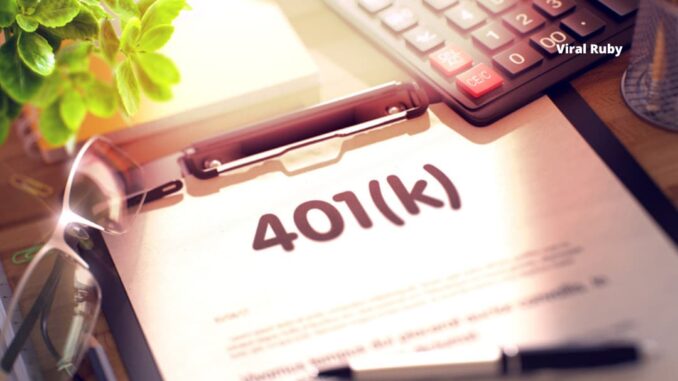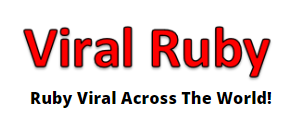
What Happens to Your 401K When You Quit?
If you have a 401(k) and decide to leave your job, you’ll likely want to find out what happens to your account when you leave. There are many things to consider, such as whether you should participate in your employer’s matching fund or not. It’s also important to keep in mind that an automatic opt-in feature may not kick in for one or three months, so you may miss out on up to 90 days of contributions or matching funds.
What happens to 401k when you quit? – 401K
If you’re leaving a job, you might wonder what happens to your 401(k). There are a few options, including leaving the money in the plan of your former employer, rolling it into an individual retirement account, or closing it. You should carefully weigh your options before deciding which route to take.
First, you may want to take some time to determine what you’ll do with your 401k. Generally, 401ks do not require early withdrawals. This is a great benefit. When you first start out, you may not know how to access your 401k funds.
For More: www msn com – MSN Official Site & MSN Search Engine
If you’re quitting your current job, you’ll likely be required to follow the rules and contributions of your old employer’s plan. If you’re offered a 401(k) match, this will be applied to your new 401(k) plan, but if you don’t, your former employer will take back any unused funds. However, you’ll still have access to your contributions if you don’t close your account. You may also choose to cash out your account in order to meet your transition needs. Rolling over to a new employer’s plan is usually your best option.
What happens to 401k when you quit your job?
If you are looking to leave your current job and leave your 401(k) behind, you’ll need to carefully consider what will happen to your savings. There are several options, including cashing out your account or rolling it over into a new IRA. The decision is ultimately up to you and your tax professional.
Depending on the plan, your employer may offer you a match for the amount of money you contributed. However, you may not qualify for this unless you’ve been working for the company for at least five years. If your 401(k) plan has a vesting period, you will need to contact your provider to find out exactly how much you’ll lose.
Must Read! www google com – Google Create Account, Search Console & Services and Products
The most common route to a 401(k) rollover is to transfer it to your new employer. This can be done via an automatic transfer, mailed check, or direct deposit. However, you must make sure you deposit your money within 60 days or your funds will be subject to income tax.
What happens to 401k when you quit fidelity?
Your 401(k) is an account that allows you to invest money and take advantage of tax benefits. There are two types: traditional or pre-tax, and Roth. Each type has different rules, but in general, you can leave the money in your account for as long as you like.
Be Aware! www indeed jobs – Indeed Post a Job for Free & Indeed Subscription
For example, if you were to withdraw $50,000 from your 401(k), you would incur a $20,500 tax bill and a $2,000 penalty. The rules are different for people of different ages, so you should consult with a financial advisor for specific details. You may also be eligible to take advantage of hardship withdrawals, which may not apply to you.
You should also find a new 401(k) plan that allows you to consolidate your money. That way, you can focus your attention on a single plan rather than multiple accounts. Be sure to check whether the new plan includes penalties for early withdrawal, which could mean losing a larger percentage of your money than you had originally planned.
What happens to 401k when you quit amazon?
If you’ve decided to quit Amazon, you may be wondering what happens to your 401K. Depending on the type of compensation package you signed up for, you may have a few options to maximize your retirement savings. One option is to opt for a pre-tax investment option. This means that your money will be invested pre-tax, reducing your tax burden now and in the future.
4 Business! 6 Easy Steps to Opening a Business Bank Account
The Amazon 401(k) plan allows you to contribute up to 90% of your salary. You can also contribute after-tax and Roth funds. However, you must make sure that your contributions do not exceed the limits set by the IRS. For example, if you maxed out your 401(k) plan before joining Amazon, you’ll have to wait until the new year to contribute again. However, you can use your old 401(k) statement to see what you contributed to your account.
The other option is to leave your 401(k) with your old employer. However, the money will not be contributing to your old account anymore. If you are over the age of 50, you can choose to transfer your money to an IRA. If you’re at least 50 years old, you can also start taking distributions from your 401(k) account without penalty.
What happens to 401k when you quit Transamerica?
The first step to rollover your Transamerica 401(k) is to fill out an application. You can find this form online through your Transamerica account. Simply click on the menu and search for “forms.” Otherwise, you can call Transamerica and request a rollover form.
Get More: www xfinity com – Xfinity Monthly Service Charge & Mobile App
You can either leave the account with your previous employer and continue contributing to it or you can transfer the funds to your new employer’s 401(k) plan. If you choose this option, you should take into account potential penalties and other investment options that your new employer may offer.
401(k) administration fees can be direct or indirect. Direct fees are deducted from the participant’s account or charged from the corporation’s bank account, while indirect fees are paid from the expenses of the investment funds. If you quit your job, you can cash out your 401(k) for less than $1000, but you should note that the check may take a few days or even weeks to reach you.
What happens to 401k when you quit Walmart?
The good news for former Walmart employees is that their 401(k) accounts will continue to grow, even if they quit. However, they are not allowed to make any additional contributions to the plan after they leave. Walmart employees are encouraged to use the 401(k) plan to save for retirement and make sure they have enough money to meet their retirement needs.
See Also: www chase com – Chase Credit Card Scam Email & JP Morgan Chase Emails
For example, Walmart will match up to $3,000 of your contributions in a 401(k) plan, as long as you make at least $3,000 per year. Once you quit, you will no longer be able to make contributions to your 401(k). But your contributions will still receive the match, meaning that you will be able to withdraw them without penalty. In addition, you will lose your rights to any unvested funds.
In addition to offering a 401(k) plan, Walmart offers excellent vesting policies. Unlike many companies, Walmart employees are immediately fully vested in their accounts. With most companies, the vesting period is extended by a few years, so Walmart employees are able to take advantage of the 401(k) plan right away. Walmart also allows employees to contribute as little as 1% of their salary or up to 50% of their salary, if they want to.
What happens to 401k when you quit empower?
If you are quitting your job, you need to decide what to do with your 401(k) savings. There are several options available, and you should carefully consider each option. Before making a final decision, it is important to speak to a financial adviser. An Empower retirement consultant can help you assess your options and determine which are the best ones for your situation.
See More: Search Engine Optimization (SEO) Best Techniques for Beginners
One option is to leave your 401(k) account in your former employer’s plan. This allows you to keep access to your money, but has some disadvantages. You may have fewer options to withdraw your money and may pay more fees. Another option is to roll your account into an IRA.
What happens to 401k when you die?
A 401(k) is a retirement account where you can designate a beneficiary. You can name a primary beneficiary and a secondary beneficiary. You have to name a beneficiary when you open your account, but you can also change it later. If you die without making any changes, the money in your account will go to the beneficiary you have designated.
Read Also: www medicalnewstoday com – Medical News Today Official Website
The rules governing 401k distribution differ for each individual. The rules are intended to protect the beneficiaries. Generally, beneficiaries of a 401(k) account should receive their money by December 31 in the year of your death. This rule is different for beneficiaries who are not your spouse or children.
Inheriting a 401(k) account is not a simple process. It is complicated, and the rules vary depending on your relationship to the deceased. Making a mistake can have long-term consequences. For example, the Secure Act of 2019 made it much more difficult for beneficiaries of a 401(k) to take lifetime distributions. But in some cases, exceptions apply.

Leave a Reply